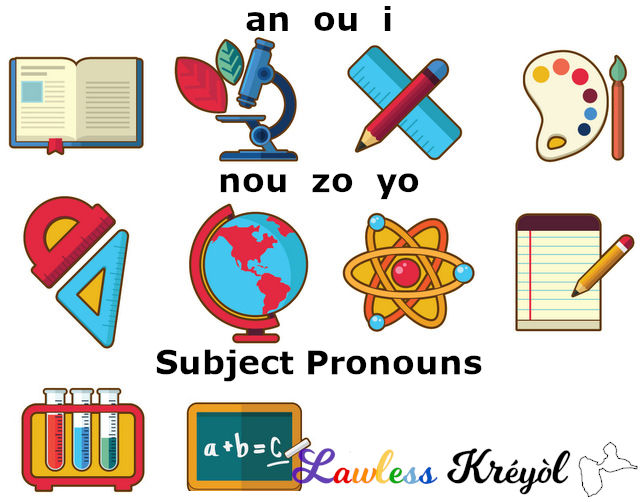 | |
| Share / Tweet / Pin Me! | |
Pwonon sijè
Subject pronouns are a type of personal pronoun that indicate who or what is performing the action of a verb.
Pa ègzanp…
| Kréyòl | French | English | |
| An parĂ©. | Je suis prĂŞt. | I’m ready. | |
| Nou dwèt pati. | Nous devons partir. | We need to leave. |
Characteristics of subject pronouns
- Serve as the subject of verbs.
- May be singular or plural to agree with the noun (subject) they replace.
Kréyòl subject pronouns
The different subject pronouns are determined by number and person.
- Number is divided into “singular” (one) and “plural” (more than one).
- Person includes “first person” (the speaker), “second person” (the listener), and “third person” (neither the speaker nor the listener).
Thus, with two numbers and three persons, there are a total of six grammatical persons and six Kréyòl subject pronouns:
| singular | plural | ||||
| 1st person | an* | I | nou | we | |
| 2nd person | ou | you | zo | you | |
| 3rd person | i | he, she, it | yo | they | |
- * The stressed form mwen may also be used as a subject – lesson coming soon.
- There are two Kréyòl words for "you": ou is singular and zo is plural. Kréyòl does not have the informal / formal distinction found in French and many other languages.
- There’s no distinction for "he" vs "she" vs "it."
- There is no Kréyòl equivalent for the French impersonal on.
 En français
En français

